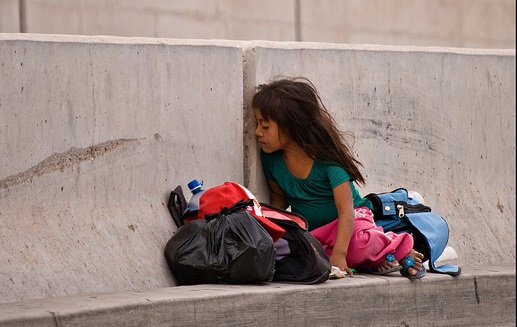Presently human trafficking is among the fastest-growing criminal enterprises in the world, but whether it continues on an upward trajectory depends a lot on how we approach border security. According to U.S. Customs and Border Patrol Border Protection (CBP), so far in fiscal year 2020, agents along the southern border have apprehended 21,301 unaccompanied alien minors (UAMs). The most vulnerable populations for human trafficking are children and immigrants, so the rise in UAMs and illegal immigration will almost certainly lead to an increase in trafficking cases.
To most people, sex trafficking is only something that happens in foreign countries; however, the United States is listed as one of the top destinations for victims. It is estimated that of the 800,000 people who are trafficked across international borders globally every year, 80 percent are women and children. Anywhere between 14,500-17,500 people are trafficked into the U.S. annually.
It is important to note that human smuggling is different from human trafficking. Trafficking involves exploitation while smuggling is a transportation-based service provided to willing participants. However, many cases of human smuggling involve kidnapping, rape, and murder on part of the smugglers. In some cases, people who contract with a smuggler are subsequently trafficked. Those who cannot pay for the contracted smuggler are forced into a type of trafficking called debt bondage wherein they must work until the debt is paid off. However, traffickers compound interest on the debt resulting in an “exploitative cycle of debt and forced labor.”
Many victims are under the false impression that they have found a good paying job or a better life, only to be trafficked upon arrival. CBP agent, Lisa Caselli, recalls an encounter with a young Russian woman who believed she was coming to the U.S. to be a model but instead had been recruited by a brothel for prostitution.
Left-wing activists and open border advocates continue to push for the defunding of CBP and ICE along with other arms of local and state law enforcement. What they don’t realize is that these agencies play a vital role in combatting human trafficking not only at our borders but across the nation.
Customs and Border Protection is the leading defense against human trafficking and forced labor. Homeland Security Investigations (HSI) agents tasked with uncovering, dismantling and disrupting the human trafficking industry “initiated 1,024 investigations with a nexus to human trafficking and recorded 2,197 arrests, 1,113 indictments, and 691 convictions” in FY 2019.
To eliminate or to reduce funding to such departments would place more immigrants and children at greater risk. CBP and HSI agents are trained to look for the signs of human trafficking, therefore, increased border security would provide a wider reach for law enforcement to identify traffickers and victims before reaching the country’s interior. Once they evade Border Patrol and enter the United States, it becomes much more difficult for law enforcement to catch these criminals and many victims are subject to a life of exploitation. Congressional failure to address the situation at the southern border promotes an environment in which exploitation flourishes.
For more information regarding CBP and Homeland Security’s efforts towards eliminating human trafficking both nationally and globally:
- No Te Engañes/Don’t Be Fooled – raise awareness amongst potential migrants, informing them of the dangers of human trafficking and help them avoid becoming a victim.
- Blue Lightning Initiative (BLI) – trains airline personnel to identify potential traffickers and human trafficking victims. 70,000 airline officials have been trained through BLI.
- Blue Campaign – national public awareness campaign, designed to educate the public, law enforcement and other industry partners such as NGO’s and private sector corporations to recognize the indicators of human trafficking.




